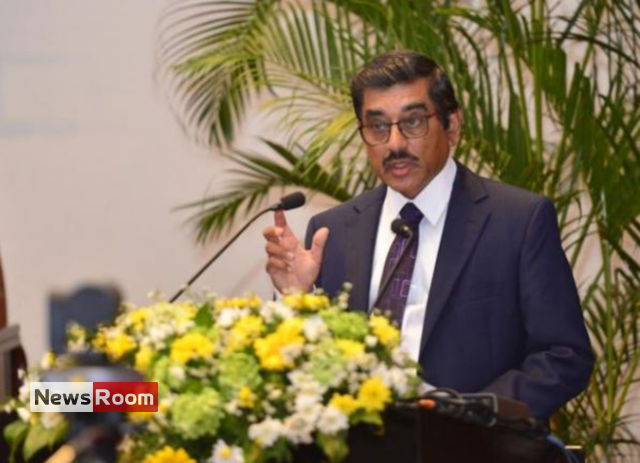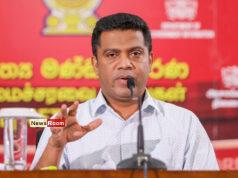ECONOMYNEXT –Sri Lanka will not re-structure Treasury bills outside of central bank holdings and will engage with major T-bond holders for voluntary ‘optimization’ Governor Nandalal Weerasinghe said.
“There will be some treatment on central bank held Treasury bills,” Governor Nandal Weeasinghe told a creditor presentation Thursday.
“Other Treasury bill holdings will not be treated. Treasury bonds we envisage voluntary optimization.”
Sri Lanka has to at least extend the maturities of bonds to reach a gross financing need target averaging 13 percent of GDP in 2027-2032 based on projections in an IMF debt sustainability analysis. Of that foreign debt service has be below 4.5 percent of GDP on average.
“Local currency creditors participation in a debt optimization will help reaching the DSA targets,” Treasury Secretary Mahinda Siriwardena said.
“Authorities are exploring options for domestic debt operations aimed at liquidity relief while preserving financial stability to avoid further eroding Sri Lanka’s repayment capacity.”
The government and advisors will “invite consultations with major T-bond holders to gauge options and constraints”, he said.Governor Weerasinghe and Treasury Secretary Mahinda Siriwardene said Sri Lanka is likely to outperform the growth targets in the IMF debt sustainability analysis given past history. The IMF DSA is projecting 3.1 percent growth in the next few years.
Sri Lanka grew at rates around 4 to 5 percent during a 30 year war, but growth started to fall after serial currency crises hit the country under flexible inflation targeting with output gap targeting (monetary stimulus) during peacetime. In 2020 taxes were also cut for stimulus, going beyond open market operations and outright purchases of bonds seen earlier.
Meanwhile state spending went up from 17 to 20 percent of GDP under state expansionist revenue based fiscal consolation after spending based consolidation (cost cutting) was thrown out of the window from 2015 to 2019, critics say.
Sri Lanka is now trying to cut spending and excessive growth of the public sector, based on normal economic principles, to limit the burden of the unaffordable state on productive sectors and the poor, while preserving essential spending.According to the latest IMF program, fiscal consolidation will be “primarily” revenue based.
Sri Lanka’s Treasury bill and bond yields were higher than required due to uncertainty over whether they will be re-structured and the so-called ‘gilt’ status will no longer apply.
The lack of an early cut off date for domestic debt is a key problem in the IMF’s current debt resolution framework as domestic bond buyers are the last resort lenders after most foreign creditors stop lending, when the IMF says a country’s debt is no longer sustainable.
Download presentation from here.
Sri Lanka and debt advisors will engage with major Treasury bond holders, Weerasinghe said.
Key T-bond holders are Employment Provident Fund, Employment Trust Fund, insurance companies and banks.
Sri Lanka is also conducting an asset quality of review of banks.
Based on its results a debt optimization options will be offered paying attention to asset liability mis-matches, Weerasinghe said.
By preserving banking sector stability foreign investors are more likely to get repaid.








